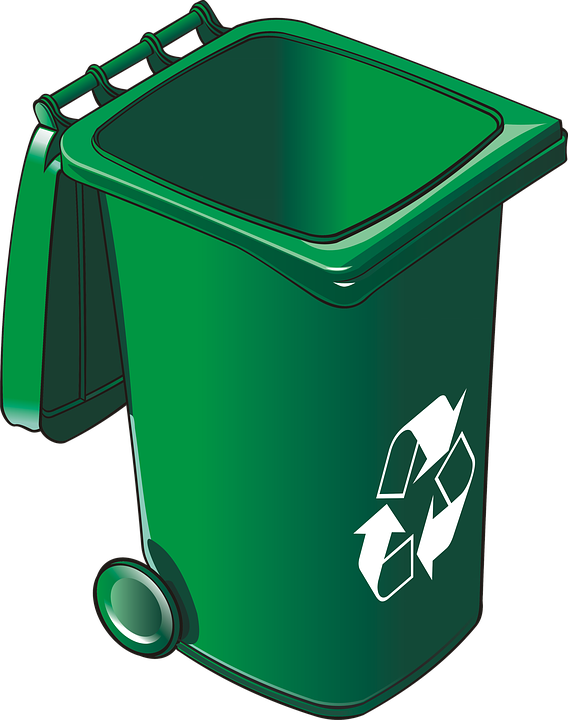RECYCLING MARKETS EXPECTED TO IMPROVE

Photo: Pixabay.com
Source: Spingfield Materials Recycling Facility Advisory Board
Recycling has been a hot topic in national news since China, a major importer of recyclable material, announced new import purity standards in 2017. When most American material did not meet the new standards, the buyer of half of the United States’ recyclables disappeared overnight. A market glut and falling commodity values followed, and municipalities are now feeling the effects. While similarities with other U.S. municipalities exist, the situation in western Massachusetts is unique enough that clarifications are in order. The Springfield Materials Recycling Facility(MRF) Advisory Board would like to emphasize important factors to help explain how western Massachusetts is affected by the current recycling market situation.
Recycled Material From The Springfield MRF Is Being Sold To Manufacturers.
The paper, plastic, and metal streams processed at the Springfield MRF have been, and continue to be, purchased by regional manufacturers. Buyers in Connecticut, Alabama, and North Carolina continue to use western Massachusetts material in the manufacture of their goods.
The Act Of Recycling Remains Important
When household recycling became popular in the 1970’s, the driving intent was to reduce trash and conserve energy and natural resources. Until recently, processing recyclables separately from trash was also financially beneficial. While the financial benefit has been reduced, significant environmental benefits remain.
Massachusetts Prohibits The Disposal Of Recyclable Paper, And Glass, Metal, And Plastic Containers
The Commonwealth bans the disposal (and transport for disposal) of specific reusable materials. While a small number of U.S. communities have halted their recycling programs in response to market changes, that option is not available to Massachusetts municipalities. It is important to note that disposing of recyclables as trash is also costly…and lacks environmental benefits.
Current Commodity Prices Do Not Cover Processing Costs.
Recycling has never been free. Transporting, sorting, and prepping recyclable material for sale are expensive in terms of transport, fuel, labor and other resources. What has changed is that commodity market prices dropped and are not rebounding quickly. The U.S. recycling industry—and by extension municipalities throughout the U.S.—is facing a situation whereby the cost to process recyclable material is currently greater than the value of the marketed product.
Springfield MRF Communities Have Been Protected From Market Fluctuations.
Most U.S. and eastern Massachusetts communities have been navigating the new recycling climate for months, but the Springfield MRF’s operator has been under contractual agreement to accept recyclable material free of charge from its member communities. The current contract governing the relationship between the MRF and its member communities expires in June 2020. The new contract requires municipalities to cover recycling processing costs up front, and includes a possible reduction in cost based on monthly commodity market revenue.
Recycling Markets Are Expected To Improve Over Time
Commodity pricing is unpredictable, but is affected by supply and demand. As demand for recycled material increases, we may expect that its value will increase. Prior to China’s decision, the US recycling industry relied heavily on overseas processing facilities. That is changing as domestic and foreign organizations invest in American facilities.
The Most Helpful Thing To Do Is Recycle Mindfully
What you put into your household recycling bin matters. Individuals can keep processing costs down by taking time to become educated about which items are recyclable, and keeping other items out of your bin. The DEP’s Recycle Smart(recyclesmartma.org) campaign and the MRF’s educational material (springfieldmrf.org) can help.
The Springfield Materials Recycling Facility (MRF) has been in operation since 1990. The Massachusetts Department of Environmental Protection (DEP) owns the land and buildings located on 84 Birnie Avenue in Springfield, Massachusetts, but operational responsibilities are contracted to Waste Management Recycle America (WMRA), a subsidiary of Waste Management Inc. The Birnie Avenue site processes recyclable paper and cardboard separately from containers, which is known as dual stream processing. WMRA provides an alternate delivery location for municipalities that collect their recyclables in a “single stream,” in which paper and containers are collected and stored together. Currently, 74 western Massachusetts municipalities are under a regional contractual agreement for processing recyclable material.
The Springfield MRF Advisory Board is a public body that discusses and reviews MRF operations, provides education about the MRF recycling programs, and acts as a liaison between member communities, the MRF operator and MassDEP.

1 thought on “RECYCLING MARKETS EXPECTED TO IMPROVE”